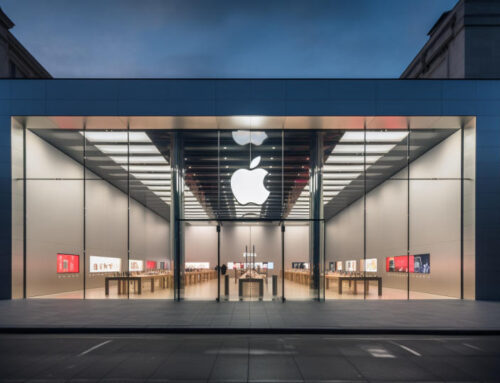Poll: What the data says about the campus speech environment
May 7, 2025
Here’s a stat: 6.0% of Northwestern undergraduates say they often have meaningful conversations with people who disagree with them politically. Almost three times that number — 15.9% — say they never do.
This number comes from The Daily’s Spring 2025 poll, which asked a series of questions about the campus speech environment. You can read about the main results of the poll here.
Universities have a dual role to provide a marketplace of ideas while remaining a safe place for students and staff to live, study and work. The poll looked into the tensions between those goals. Do students feel free to speak their mind? Conversely, do students feel that speech sometimes crosses a line? Here’s what NU students have to say.
On a liberal campus, moderate and conservative students feel less free to express their views
The short answer to the first question — whether students feel safe to speak their mind — is that it depends on what they want to say.
The vast majority of students who identified as “very liberal” said they feel “somewhat” or “very” comfortable expressing their political views on campus and in their classes (79.3%). Most students who identified as “somewhat liberal” agreed (69.3%).
But among students who identified as moderate or conservative — amounting to just 17.7% of students — only 25.0% felt comfortable expressing their views. A majority said they felt somewhat or very uncomfortable (58.8%).
Moderate and conservative students were also far more likely to say that they felt pressured to align with the dominant political views on campus, at 57.6% compared to just 24.4% among all liberal-identifying students.
These numbers are perhaps unsurprising, given the political makeup of Northwestern. Students identify as “very liberal” and “somewhat liberal” at a rate of around 40% each, leaving the remaining fifth of students split between “moderate” (12.9%), “somewhat conservative” (3.1%) and “very conservative” (1.6%).
The student body is thus predominantly made up of liberal-identifying people — and students know it. Even 42.7% of “somewhat liberal” students say NU’s political culture lies to the left of their own — as do 89.4% of moderates and conservatives.
This political climate suggests a possible explanation for why students are not talking to those who disagree with them politically.
For the liberal-identifying students, 35.1% of whom say they have meaningful political disagreements “sometimes” or “often,” there might just not be that many people to disagree with, at least when it comes to the left-to-right political spectrum.
And for the conservative students, for whom the number is 51.5% — well, there aren’t very many of them; besides, the data shows that many don’t feel comfortable speaking their mind in this campus environment.
Student views on campus antisemitism and Islamophobia differ by religion and political identity
Universities like NU have come under scrutiny from the federal government and the public for alleged antisemitism in light of pro-Palestinian campus protests that have occurred in the last two years since the outbreak of the Israel-Hamas war. NU is also currently undergoing several federal investigations relating to antisemitism.
The majority of Jewish students identify antisemitism as a “somewhat” or “very” serious problem at NU (63.1%), joined by 30.4% of the whole student body. A smaller number of Jewish students say it is “not much of a problem” or “not a problem” (36.9%), along with a slight majority of the whole student body (56.7%).
Three-fifths of Jewish students say they or someone they know have experienced antisemitic behavior on campus (58.0%), along with 19.5% of the student body.
Just under half of all students say Islamophobia is a “somewhat” or “very” serious problem on campus at 47.2%, with 36.5% saying it is “not much of a problem” or “not a problem.” One fifth of the student body says they or someone they know have experienced Islamophobic behavior on campus (20.6%). The sample size of Muslim students who responded to the poll was too small to report separate data.
One in five students identified both antisemitism and Islamophobia as “somewhat” or “very” serious problems (20.2%).
Whether a student viewed antisemitism as a problem on campus had a lot to do with their political beliefs. Students who identified as “very liberal” only identified antisemitism as a very serious problem at Northwestern 3.5% of the time, while students who identified as moderate or conservative did so 13.4% of the time.
On the other hand, “very liberal” students identified Islamophobia as a somewhat or very serious problem a combined 63.3% of the time, compared to moderate and conservative students who did so a combined 26.3% of the time.
“Very liberal” (33.3%) students were also much more likely than “somewhat liberal” (13.0%) and moderate and conservative (10.3%) students to report having experienced, or knowing someone who has experienced, Islamophobic behavior on campus.
It isn’t true that politically moderate and conservative students are significantly more likely to be Jewish. The student body as a whole is approximately 12.1% Jewish, according to our poll data, while 15.2% of moderates and conservatives are Jewish — not significantly different.
Conversely, Jewish students are actually more likely than any other religiously-identifying student group to identify as “very liberal” at 41.4%. For comparison, 27.4% of Protestant students, 24.6% of Catholic students and 39.8% of the whole student body identified as “very liberal.” Atheist and agnostic students were the most likely to identify as “very liberal.”
Political differences around perceptions of antisemitism and Islamophobia may partly stem from different interpretations of the terms. The Daily chose not to offer a definition of either term in the poll, in order to not influence respondents in one direction or another.
Many students opted to write in comments about the issue. One specified that they were not sure whether Islamophobia was an issue at Northwestern, but they “know that being anti-Palestinian is.” Some drew distinctions between anti-Zionism and antisemitism, suggesting a possible disagreement about whether criticism of Israel counted as antisemitic. A student said they struggled to comment on antisemitism “because of how deeply misconstrued the definition of antisemitism has become on our campus, in large part because of the definition the university is pushing onto us.”
Email: [email protected]
Related Stories:
— Poll: AI use frequency jumps from Fall Quarter, ChatGPT reigns supreme
— Poll: How federal funding and visa policies are affecting NU students
Search
RECENT PRESS RELEASES
Related Post



